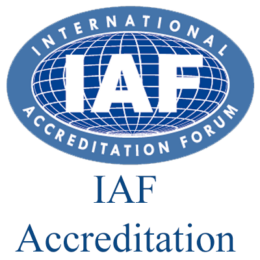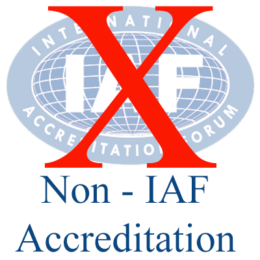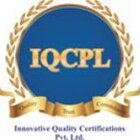
ISO/IEC 20000-1:2018 – IT Service Management System (ITSMS)
ISO/IEC 20000-1:2018 is an internationally recognized standard for IT Service Management Systems (ITSMS). It provides a structured framework to ensure that IT services are delivered efficiently, consistently, and in alignment with business and customer needs. The standard is applicable to organizations of all sizes and industries that provide IT services, whether internally or externally.
Benefits of ISO/IEC 20000-1:2018 – IT Service Management System (ITSMS)
Connect with Us today
About
ISO/IEC 20000-1:2018 – IT Service Management System (ITSMS)
ISO/IEC 20000-1:2018 is an internationally recognized standard for IT Service Management Systems (ITSMS). It provides a framework for organizations to establish, implement, maintain, and continually improve IT service management. This standard ensures that IT services align with business needs, enhance customer satisfaction, and drive operational efficiency.
Relationship to ISO 9001:2015
While ISO 9001:2015 focuses on Quality Management Systems (QMS) for overall business operations, ISO/IEC 20000-1:2018 is specific to IT services. Both standards share common principles such as process improvement, risk-based thinking, and customer focus, making them compatible for integration within an organization’s management system.
Clauses of ISO/IEC 20000-1:2018
The standard follows a structure similar to ISO 9001:2015 and includes the following key clauses:
Clause 1: Scope – Defines the purpose, applicability, and requirements of IT service management.
Clause 2: Normative References – Lists relevant standards that support ISO/IEC 20000-1 implementation.
Clause 3: Terms and Definitions – Provides key definitions related to IT service management.
Clause 4: Context of the Organization – Addresses internal and external factors affecting IT service management.
Clause 5: Leadership – Emphasizes the role of top management in ensuring effective IT service management.
Clause 6: Planning – Covers risk assessment, service objectives, and planning for service management.
Clause 7: Support – Includes resource management, competency, documentation, and communication.
Clause 8: Operation – Focuses on service design, delivery, and improvement.
Clause 9: Performance Evaluation – Involves performance monitoring, audits, and customer feedback.
Clause 10: Improvement – Ensures continual service enhancement through corrective actions and innovation.
Would you like a tailored version of this content for a brochure, website, or training material?
-
Benefits of ISO/IEC 20000-1:2018 – IT Service Management System (ITSMS)
-
Enhanced IT Service Quality – Ensures that IT services are delivered consistently and efficiently, improving overall service reliability.
-
Increased Customer Satisfaction – Aligns IT services with business and customer needs, leading to better experiences and stronger relationships.
-
Improved Risk Management – Identifies, assesses, and mitigates IT service risks, reducing potential disruptions and failures.
-
Higher Operational Efficiency – Streamlines IT processes, reduces redundancies, and optimizes resource utilization.
-
Regulatory and Compliance Assurance – Helps organizations meet legal, contractual, and regulatory IT service requirements.
-
Stronger IT Governance – Provides a structured approach for managing IT services, ensuring accountability and continuous improvement.
-
Competitive Advantage – Demonstrates a commitment to IT service excellence, enhancing credibility and market positioning.
-
Seamless Integration with Other Standards – Aligns with ISO 9001 (Quality Management), ISO/IEC 27001 (Information Security), and ITIL best practices for a unified management system.
Would you like this content customized for a brochure, website, or training material?
-
There’s a global federation for all the accreditation bodies worldwide, that regulates these accreditation bodies, which is known as International Accreditation Forum or IAF. The task of IAF is to check any sort of negligence by an accreditation body while implementation of the quality specifications and carrying out the ISO certification process

I am text block. Click edit button to change this text. Lorem ipsum dolor sit amet, consectetur adipiscing elit. Ut elit tellus, luctus nec ullamcorper mattis, pulvinar dapibus leo.
I am text block. Click edit button to change this text. Lorem ipsum dolor sit amet, consectetur adipiscing elit. Ut elit tellus, luctus nec ullamcorper mattis, pulvinar dapibus leo.



















